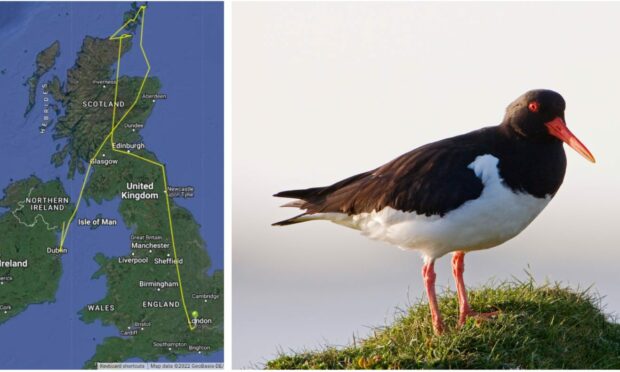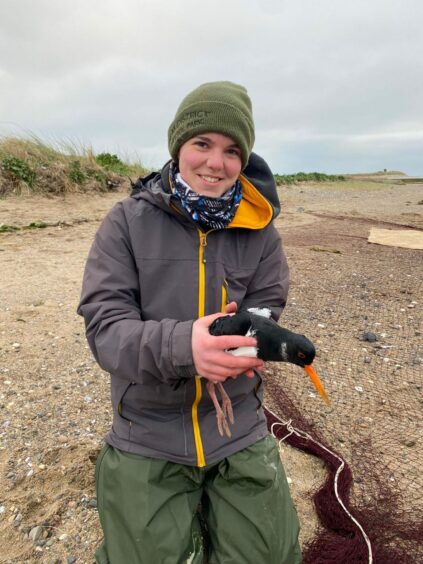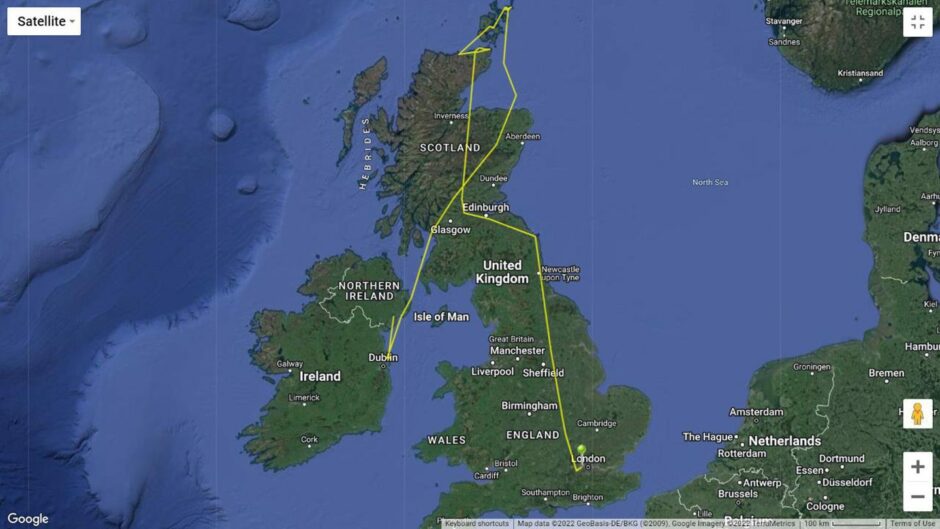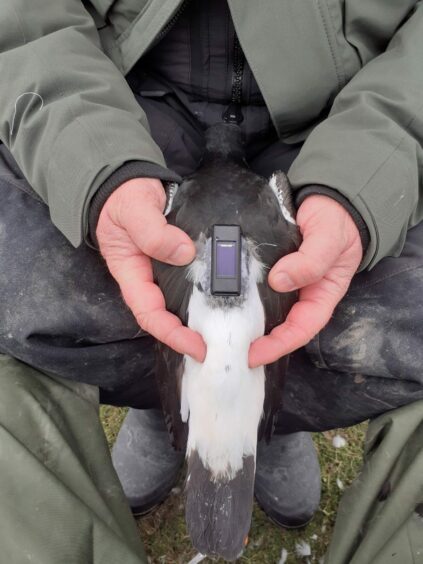Researchers are offering a reward for a bird tag which fell off in Orkney and appears to have ended up in a home in London.
The tracker recorded the bird’s migration before it naturally fell off on the island of Sanday.
However, researchers were shocked when the GPS device continued to transmit and started travelling again before ending up in a street in Ealing, west London.
Those involved in the research project believe the tracker was found by someone visiting Orkney on holiday before taking it home.
They are now offering a £100 reward for the return of the device and are appealing to the holidaymaker to contact them.
‘We weren’t expecting it to end up in someone’s house’
The trackers are part of a study being carried out with Dublin Bay Biosphere and College of Life and Environment at the University of Exeter.
Superglued to the oystercatchers, the tiny 10g box powered by a solar panel tracks their winter migration habits. The £1,000 devices are designed to naturally fall off in the spring.
Steph Trapp, a PhD student carrying out the research with Professor Stu Bearhop, said the project aims to see how best to conserve the birds and which habitats need most preserving.
She said the oystercatcher tag fell off on April 7 and lay on a beach in Sanday until the end of May.
The 23-year-old said: “It actually stayed on longer than we expected which happened with most of the birds.
“It stayed on covering the bird’s whole migration which was a bit of a bonus cause we weren’t really expecting to get the migration on top of the winter habits.”
However, Miss Trapp said it started moving again: “It was a bit of a shock when I was looking through the tracks and I saw it.
“You can see on the tracks quite clearly where they’ve been. It feels a little bit odd.”
From the transmit, Miss Trapp said you could see they had visited a campsite and pizza restaurant before flying to London and ending up in a residential street in Ealing.
“We’ve never had that before,” she said. “This was quite unexpected and strange because the tags do have Stu’s email address on them so we expect if anyone picked it up they’d get in touch but they haven’t so it might mean the email address has rubbed off or something like that.
“But no, we weren’t expecting it to end up in someone’s house.”
Tags being returned help research
Several species of birds have been tagged as part of the research meaning some tags do fall off on land. If they continue to transmit, Miss Trapp said it was possible to track them and asked for help in finding them.
“Then we can get a bigger sample size for the study,” she added. “The trackers are quite expensive which is the sad thing because a lot of the time we’re not expecting to get them back, only one or two of them.
“But ones that fall off and carry on transmitting, that’s good because we’ve got the location. So we’ve been able to ask a few people around to go and have a look for them for us. We’re hoping to get a few of them back at least.”
“If anyone does think they might know who had it or if anyone finds one of the tags just get in touch and get it back to us and we can give a reward for that.
“The more birds we can tag the better idea we’re going to get to see how they’re using habitats and which areas need to be conserved the most.”
Anyone who might have information or finds a tracker is asked to contact the department at the university.




Conversation